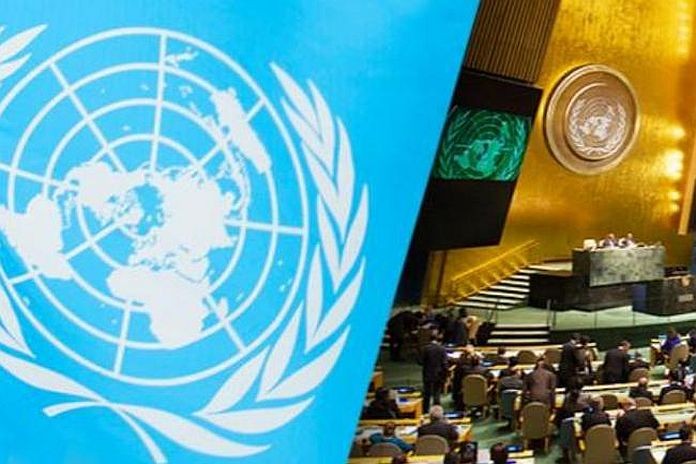GENEVA, Switzerland – World Health Organization (WHO) is urging leaders attending the 76th session of the United Nations General Assembly (UNGA) to guarantee equitable access to COVID-19 vaccines and other life-saving tools; ensure the world is better prepared to respond to future pandemics, and renew efforts to achieve the Sustainable Development Goals (SDGs).
The COVID-19 pandemic has already claimed the lives of nearly five million people around the globe, and the virus continues to circulate actively in all regions of the world.
Vaccines are the most critical tool to end the pandemic and save lives and livelihoods. More than 5.7 billion vaccine doses have been administered globally, but 73 percent of all doses have been administered in just ten countries. High-income countries have administered 61 times more doses per inhabitant than low-income countries. The longer vaccine inequity persists, the more the virus will keep circulating and evolving, and the longer the social and economic disruption will continue.
WHO’s targets are to vaccinate at least 40 percent of the population of every country by the end of this year, and 70 percent by the middle of next year. These targets are achievable if countries and manufacturers make a genuine commitment to vaccine equity.
WHO is calling on countries to fulfil their dose-sharing pledges immediately and to swap their near-term vaccine deliveries with COVAX and AVAT (African COVID-19 Vaccine Acquisition Task Team); WHO is also calling on manufacturers to prioritize supplies to COVAX and partners, and for countries and manufacturers to facilitate the sharing of technology, know-how and intellectual property to support regional vaccine manufacturing.
Even as countries focus on ending this pandemic, the world must also prepare for future pandemics and other health emergencies.
COVID-19 caught the world including wealthy nations unprepared for a pandemic of this speed and scale. It hit vulnerable populations particularly hard and exacerbated inequalities.
WHO urges all countries to break the cycle of ‘panic and neglect’ seen after previous health emergencies, and commit adequate financial resources, as well as political will, to strengthening health emergency preparedness across the globe.
Universal health coverage (UHC) is a keystone of global health security. Despite progress in UHC in recent years, 90 percent of countries have reported disruptions in essential health services due to the pandemic, with the consequences reverberating beyond the health sector.
Serious investment in UHC and pandemic preparedness is critical not only to bolster global health security but also to getting the 2030 Sustainable Development Agenda back on track.
The pandemic has reversed progress towards the SDGs, including gains that had been made on eradicating poverty, eliminating gender inequality, vaccinating children against communicable diseases and girls’ and boys’ education. But it is also providing the world with new opportunities to do things differently and to truly collaborate on building back better – towards a healthier, fairer, more inclusive and sustainable world.
WHO urges world leaders gathering at UNGA this week to seize the moment and commit to concerted action, adequate resources and solidarity, in order to build a better future for people and the planet.






